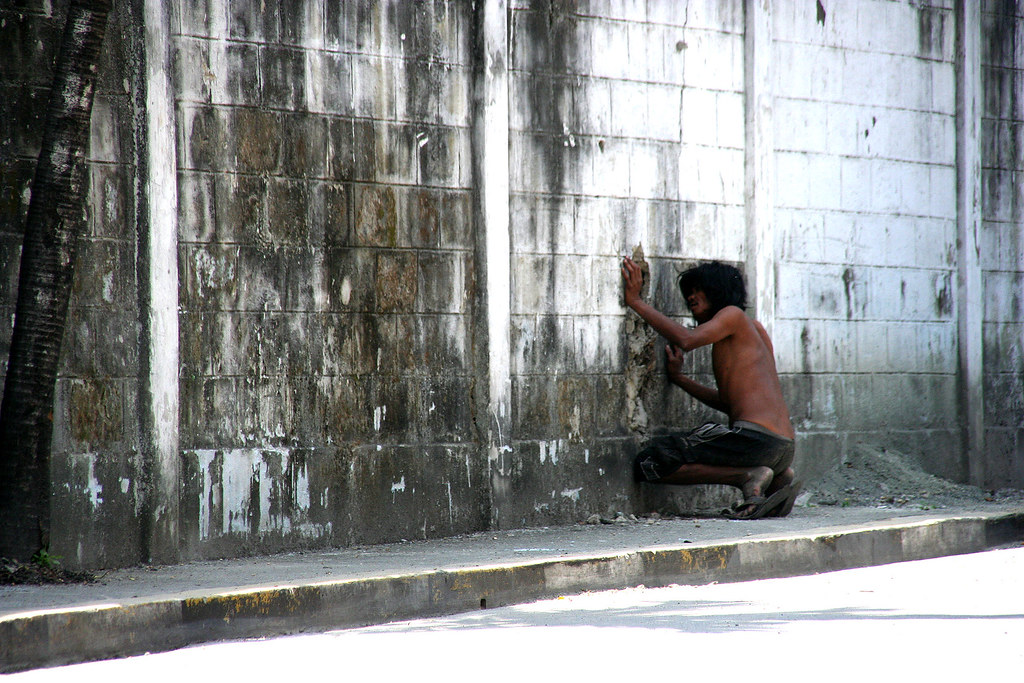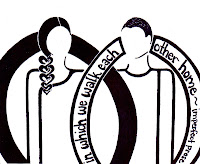Understanding Church Divided
I have been reading "Forgotten Among Lilies" for the past 3 weeks now. I'm 72% done says my Kindle eReader. I've decided that for me to really get into what I read, I'll keep sharing some excerpts here since writing helps me believe.
Today I read Fr. Ronald's Rolheiser's reflection on how the Church has been divided. He writes with a voice of true seeking. I can understand how he must have felt he went on a far limb. But doesn't one who loves really go that far just to stretch the capacity of how their hearts can hold on to an embrace? And isn't being Catholic a huge embrace of diversity? The tension is clear. The discomfort is present. But to me, his message is love. To continue to love. As wide. As high. To the ends of the earth.
 |
| {all photos from adi mari's page} |
We live in a time of pain and division. Daily, in the world and in the church, hatred, anger and bitterness are growing. It is ever harder to live at peace with each other, to be calm, not to alienate someone just by being. There is so much wound and division around. Our psychic temperature is on the rise and with it, as Jesus predicted, son is turning against father, daughter against mother, sister against brother. We are being divided.
We are wounded, whether we admit it or not. Knowingly and unknowingly, in all these issues we have been either oppressor or oppressed and consequently we approach them either too full of wound or too defensive to see straight. In either case the temptation is to become bitter and to give into the propensity to feel that we have the right to be angry, to hate certain people, to be self-righteous, and to dissociate sympathy and understanding from certain others.
That is a tragic mistake.
Valid, painful and imperative as these issues may be, reason, love, understanding and long-suffering may never give way to a progressive and militant bitterness which can irrevocably alienate. That is the road to hell because bitterness is hell.
Yet that is what is happening today. We are too easily giving in to the temptation to think that because we have been wounded, or because others are wounded, we have the right to hate, to withdraw our empathy, to think in terms of black and white, and to be bitter.
It is getting worse. Bitterness, like cancer, is slowly infecting more and more of Christ's body. We need to read this, the sign of the times, and respond to it out of the Gospel. It is my submission that, given this bitterness, the Christian vocation today, for a time, will be that of letting ourselves bleed, in tears and tension, to wash out these wounds.
So what does a the Christian who wants to be faithful today do? Ignore Rome? Consider the women's movement and social justice fads? Grow cynical? Mind his or her own business and let be what is? Say "the hell with them all"? Since nothing else is possible for now, save bitterness, which must be rejected, the answer lies in a fidelity which accepts suffering. To be faithful today manes to live in pain, in tension, in frustration, in seeming compromise often hated by both sides. Our call today is to reconcile by feeling the pain of all sides and by letting our pain and helplessness be a buffer that heals, the blood that helps wash the wound. As a simple start we can test how open-minded we are on all these issues by seeing how much pain we are in.
As I attempt to take in these words today, I say a prayer to those who with the heart of peacemakers try to bridge gaps between people. Friends, family, brothers, sisters, husband, wife, churches, ministries, leaders. It is not easy to be the bearers of the tension. It is not easy to be in the middle of a gaping wound. But still we do it.
__
all pictures are from my friend Adi Mari. She's a nomad and has lived in many places. Currently she stays in London and is an art student.





Comments
Post a Comment